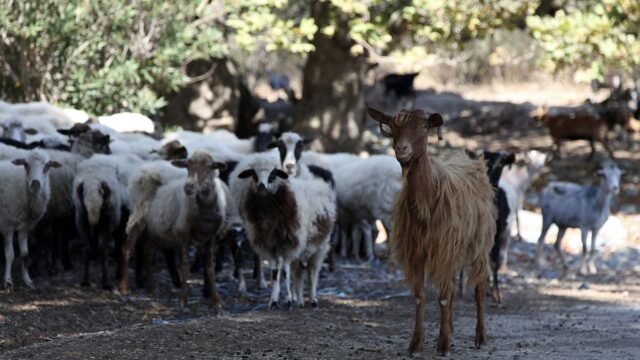Greece is facing an unprecedented health crisis in its livestock industry. Greek authorities have announced nationwide restrictions to combat a dangerous viral outbreak that threatens the country’s sheep and goats.
The disease in question, known as Peste des Petits Ruminants (PPR)was detected for the first time on July 11 in the central Thessaly.
PPR is a disease highly contagious that affects sheep and goats, but does not represent a risk to humans. Given the seriousness of the situation, the Minister of Agriculture, Kostas Tsiaras, has taken forceful measures. A has been imposed national ban on the movement of sheep and goats with the aim of stopping the spread of the disease and eradicating the pest.
The situation is alarming, with 22 confirmed cases of rinderpest in Greek cattle. The majority of these cases, 20 in total, have been detected in Thessaly, while one case has been recorded in Corinth, Peloponnese, and another in Attica. Following European guidelines, all affected units must undergo a rigorous process: animal sacrifice, disinfection and quarantine.
Measures taken to stop the plague
Since the detection of the first case in July, authorities have taken drastic measures. More than 10,768 animals have been sacrificedand another 2,000 are expected to suffer the same fate soon. Both farmers as officials have noted that the disease likely entered the country through imported cattle.
Minister Tsiaras has emphasized the importance of containment measures. In a recent statement, he stated: “The measures that have been in force since last week, related to the transport, movement and slaughter of animals, will be extended for another week. I consider this to be a really important step, as The transport of animals has been the greatest risk for the spread of the illness”.
Health authorities are working tirelessly to contain the outbreak. Veterinarian teams, dressed in protective equipment, are visiting affected farms to take samples from infected animals. In addition, there are being carried out rigorous disinfection processes of vehicles to prevent further spread.
This crisis highlights the importance of biosecurity in the livestock industry and the need for a rapid and coordinated response to health threats. As Greece struggles to contain this outbreak, the situation serves as a reminder to other countries about the importance of maintaining strict controls on the importation of livestock and the need for early disease detection systems.







